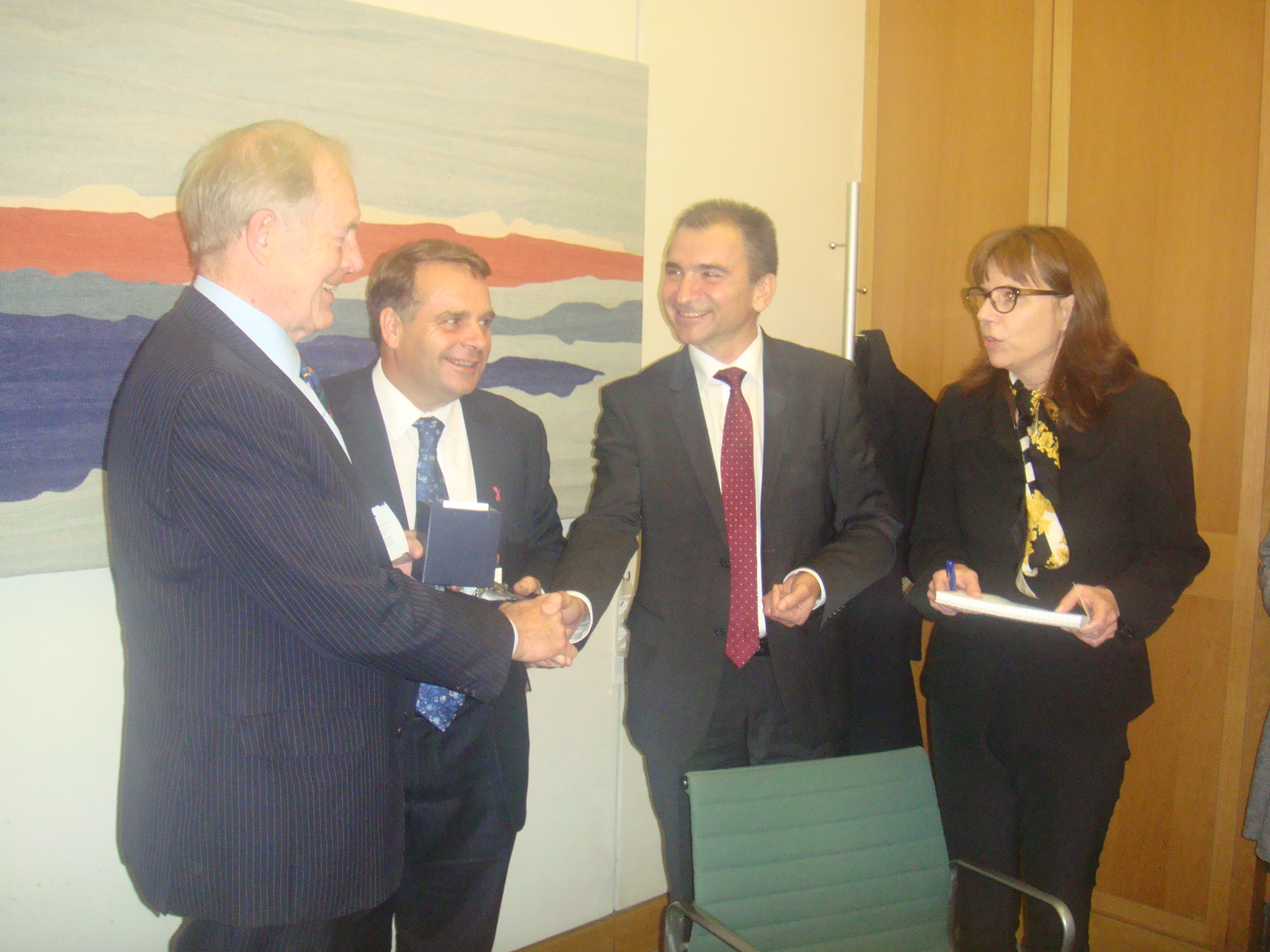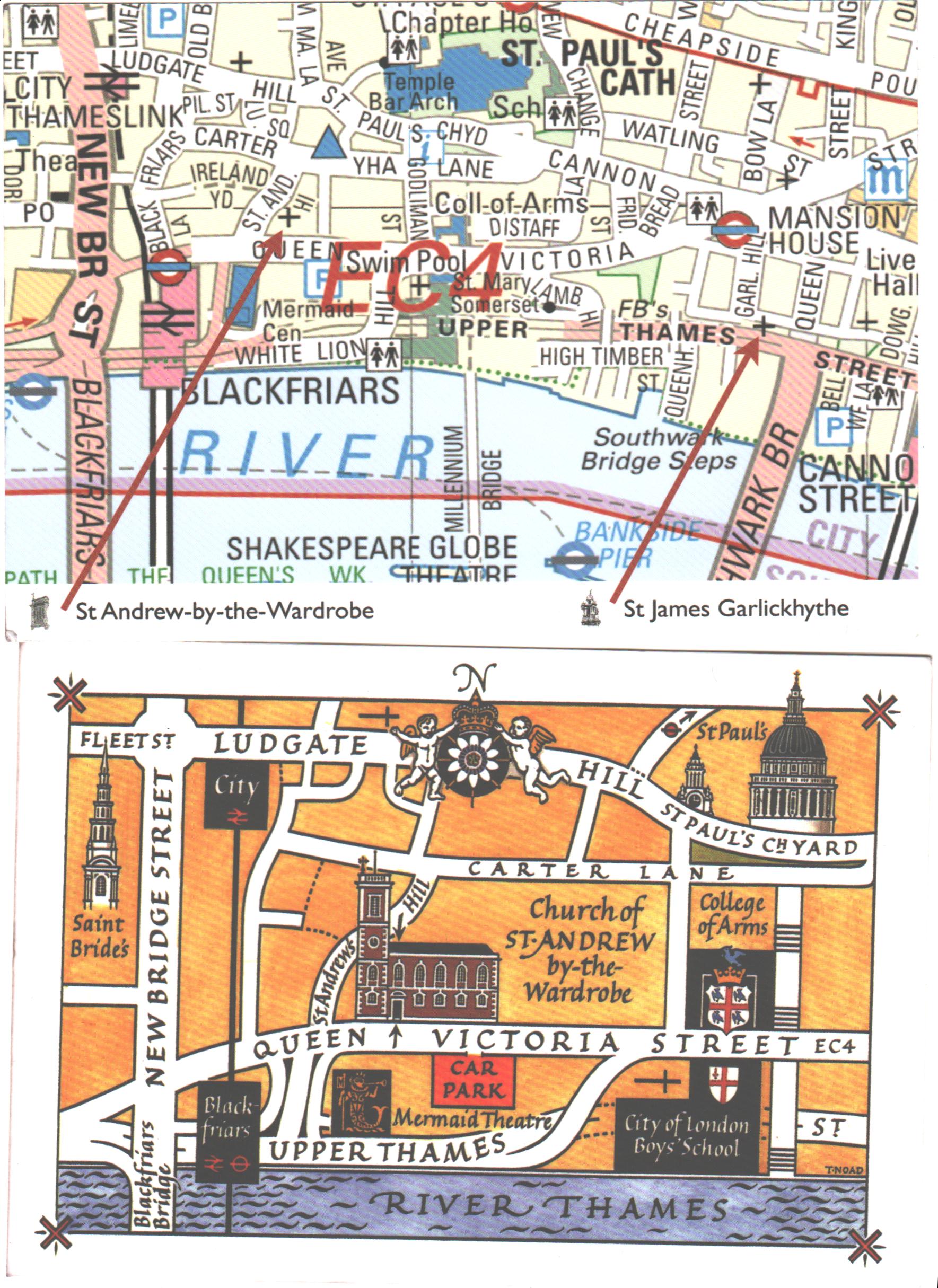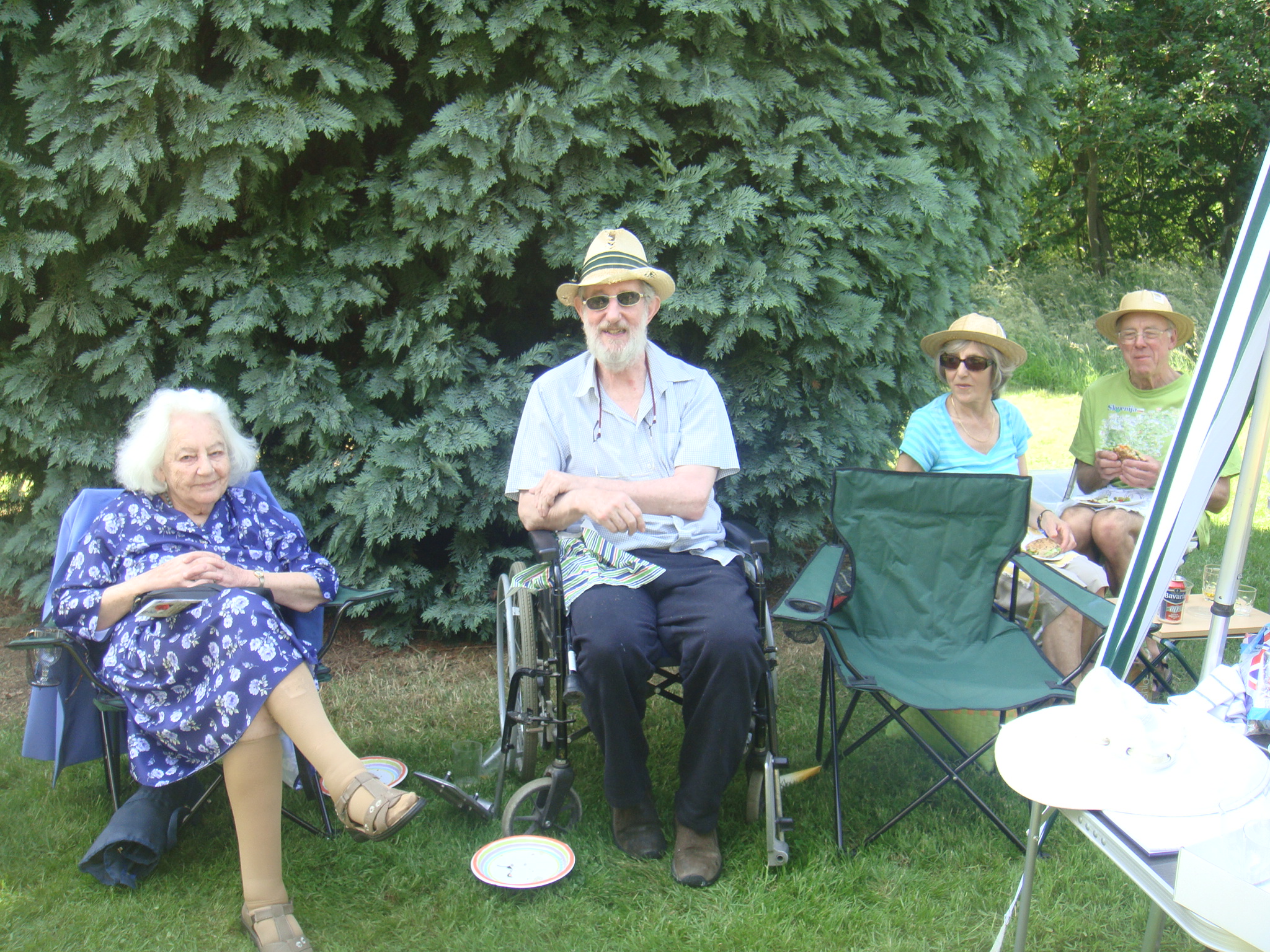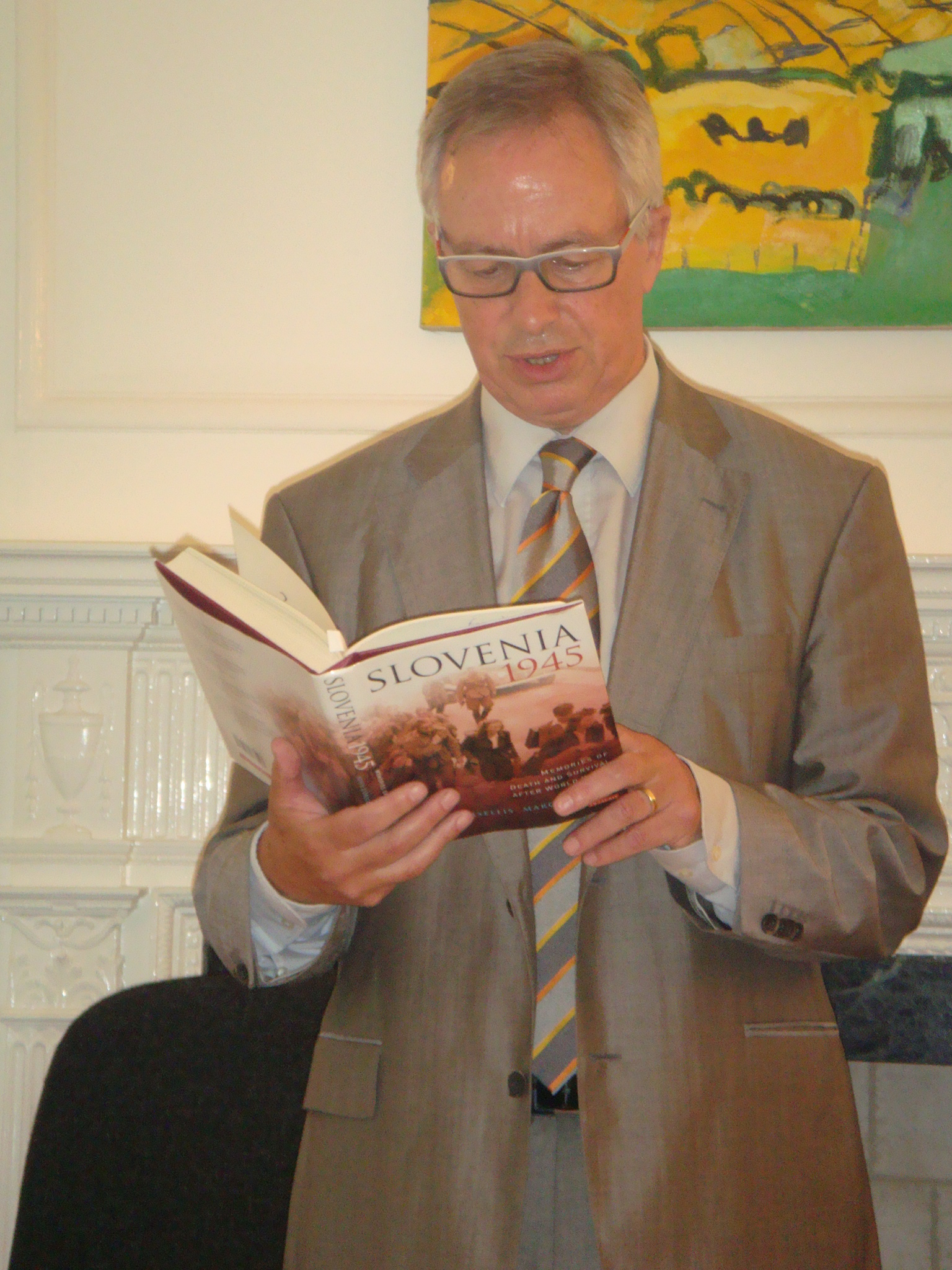Canon Timothy Vincent Russ, an English Catholic priest, was a long-time friend of Slovenes, in the U.K. and elsewhere. He held a Mass of Reparation in 2010 to commemorate Slovene soldiers massacred in ex-Yugoslavia in 1945 after being returned by the British. He died on 29 June 2013 after a brief illness. Keith Miles, O.B.E. wrote this tribute:
Timothy Russ came from an old Catholic family and looked back to his forebears, the Huddlestons, with great pride. His family legend traced their Englishness back to the Anglo-Saxon King Athlestan in the 10th century.
Tim was born during the Second World War, in which his father died serving in the Royal Navy. After school, he went to Queen’s College Cambridge, where he read Economics and graduated with a First-Class degree.
To his mother’s surprise, after Cambridge he decided to study for the priesthood and went to St. Mary’s College, Oscott, the seminary of the Archdiocese of Birmingham serving the Church in England, Wales & Scotland.
After the six years of formation for the priesthood, he was ordained in 1972 and became assistant priest in St Lawrence Cambridge and St Martin Luton. He then became secretary to Bishop Charles Grant. Tim felt great affinity with Bishop Grant, who was born in Cambridge where the Huddleston ancestral home, Sawston Hall, is located.
He moved on to be the Parish Priest in Burnham, and in 1996 to the Church of The Immaculate Heart of Mary, Great Missenden, Bucks. He was also the Canon Theologian on the Cathedral Chapter of the Diocese of Northampton.
He intensively studied the works of Bernard J.F. Lonergan, SJ, CC, a Canadian Jesuit priest, philosopher, and theologian regarded by some as one of the most important thinkers of the twentieth century. Tim was probably one of the best-read persons on his works in England.
In recent years, Tim arranged for locum priests from Slovenia to run the parish during his annual three-week summer leave. As a result of this connection, he became aware of the massacre of young Slovene Catholic soldiers by the Communists in 1945 after being returned from Austria by the British Army. This inspired him to organise a special Mass of Reparation to bring reconciliation and give a spiritual compensation from the United Kingdom for the mistake made in returning these young men.
The Bishop of Northampton, the Anglican Bishop of Buckingham, the Archbishop of Ljubljana and many other dignitaries participated in the service held in Great Missenden, which was filmed for Slovenian TV. Cardinal France Rode, who lost a brother in the massacre, sent a personal message from the Vatican.
Tim felt that this was one of the more important things he did in life. One of those who took part said ‘celebrating the Reparation Mass was an important historical event, not only for all those who were present, but also for the relatives of those hundreds of thousands of victims in 1945, who will always remember his name.’
In recent years Tim showed his versatility not only as a keen fisherman but even establishing a vineyard near Little Missenden. Truly a man for all seasons.
Tim Russ died peacefully in his home on the feast of St Peter and St Paul. He had been suffering from pancreatic cancer.
The Bishop of Northampton spoke of the ‘great faith and equanimity with which Canon Timothy received the diagnosis three months ago that he was terminally ill’.











